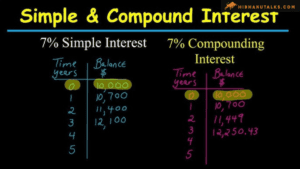
GAIL & Petron Scientech Join Forces for Bio-Ethylene Plant in India
Contents
GAIL and Petron Scientech Joint Venture
GAIL & Petron Scientech Join Forces for Bio-Ethylene Plant in India
Introduction
GAIL (India) Ltd, one of India’s leading natural gas companies, has signed a memorandum of understanding (MoU) with US-based Petron Scientech Inc. to explore the establishment of a 500 kilo ton per annum (KTA) bio-ethylene plant in India. This collaboration marks a significant step towards enhancing India’s bio-economy and aligns with the country’s goals for sustainable development and carbon reduction.


Details of the MoU
The non-binding MoU was signed by Sumit Kishore, Executive Director of Business Development and Exploration at GAIL, and Yogi Sarin, CEO of Petron Scientech, on Wednesday. Under the terms of the agreement, both companies will conduct feasibility studies to assess the technical and financial viability of the project. The objective is to secure investment approval and form a joint venture (JV) to bring the bio-ethylene plant and its downstream units to fruition.
GAIL’s Commitment to Sustainability
GAIL’s venture into bio-ethylene production is part of its broader strategy to contribute to India’s net-zero carbon emissions target. The company has been actively diversifying its portfolio to include cleaner fuels and renewable energy sources. In June 2024, GAIL announced that it had advanced its target for achieving net-zero carbon emissions by five years, moving the deadline from 2040 to 2035. The company’s initiatives include the electrification of processes, the use of renewable energy, battery energy storage systems, compressed biogas, and green hydrogen production.
In May 2024, GAIL commissioned its first green hydrogen plant in Madhya Pradesh, further demonstrating its commitment to sustainable energy. Additionally, the company is setting up 20 megawatts of solar power facilities at its Vijaipur plant in Madhya Pradesh, complementing its renewable energy goals.


Petron Scientech’s Expertise
Petron Scientech, headquartered in New Jersey, USA, specializes in setting up biorefinery projects that process biomass and grain to produce bio-ethylene, bio-chemicals, and various bio-fuels. With branches in Portugal, India, and a technology and R&D hub in the UAE, Petron brings extensive expertise in sustainable biorefinery solutions to the partnership.
Advantages of the Joint Venture
- Advancement of Bio-Economy: The JV will contribute to the growth of India’s bio-economy by producing bio-ethylene, a key component in the production of various bio-based products.
- Sustainability Goals: The project aligns with India’s net-zero carbon emissions target and GAIL’s commitment to sustainability, contributing to cleaner energy solutions.
- Technological Expertise: The partnership leverages Petron Scientech’s expertise in biorefinery projects, ensuring the implementation of advanced and efficient technologies.
- Economic Growth: The establishment of the bio-ethylene plant will likely create jobs and stimulate economic growth in the regions where the plant and its downstream units are located.


Disadvantages of the Joint Venture
- High Initial Investment: The project will require significant upfront investment, which could pose financial risks if the feasibility studies reveal challenges or unforeseen costs.
- Technical Challenges: Setting up a bio-ethylene plant involves complex technologies and processes, which may present technical challenges during the implementation phase.
- Regulatory Hurdles: The JV may face regulatory approvals and compliance issues, which could delay the project’s timeline or increase costs.
- Market Risks: The bio-ethylene market is subject to fluctuations in demand and competition from other bio-based products, which could impact the profitability of the venture.


Conclusion
The collaboration between GAIL and Petron Scientech represents a strategic move towards advancing India’s bio-economy and achieving sustainable energy goals. While the joint venture offers significant advantages, including technological expertise and alignment with national sustainability targets, it also carries potential risks related to investment, technical challenges, and market dynamics. As both companies move forward with feasibility studies and seek investment approval, the success of the bio-ethylene plant will depend on careful planning, execution, and market conditions.


FAQs
- What is the purpose of the MoU between GAIL and Petron Scientech?
- The MoU aims to explore the feasibility of setting up a 500 KTA bio-ethylene plant in India through a joint venture.
- How does this project align with GAIL’s sustainability goals?
- The project is part of GAIL’s broader strategy to achieve net-zero carbon emissions by 2035 and contribute to India’s sustainable energy initiatives.
- What expertise does Petron Scientech bring to the joint venture?
- Petron Scientech specializes in biorefinery projects that process biomass and grain to produce bio-ethylene, bio-chemicals, and bio-fuels, bringing extensive expertise to the collaboration.
- What are the potential advantages of this joint venture?
- The JV is expected to advance India’s bio-economy, align with sustainability goals, leverage technological expertise, and stimulate economic growth.
- What are the potential challenges of this project?
- The project may face high initial investment, technical challenges, regulatory hurdles, and market risks.





















3 comments